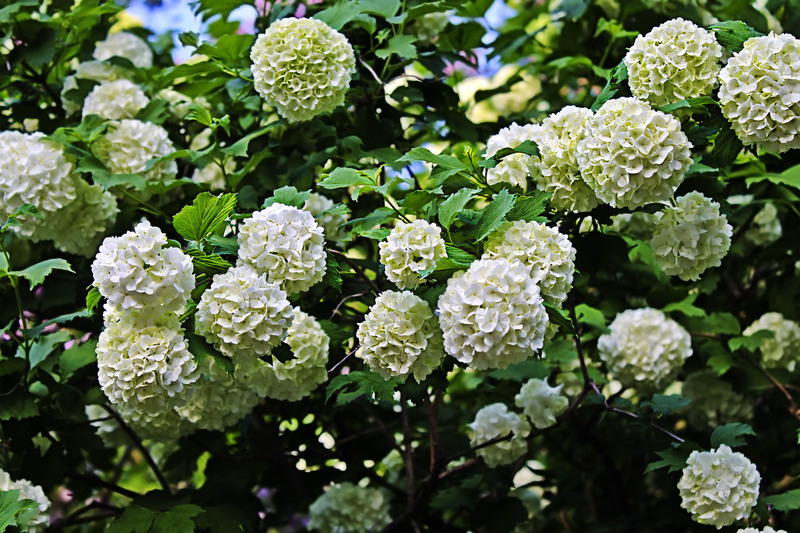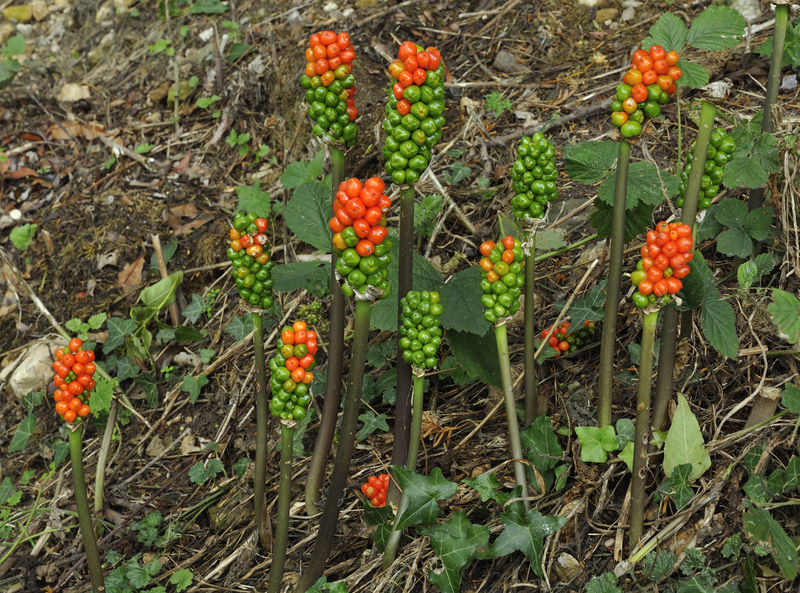Growing Green: 9 Essential Gardening Tips for Beginners
Posted on 26/08/2025
Growing Green: 9 Essential Gardening Tips for Beginners
Embarking on your gardening journey can be both exciting and overwhelming. Whether you have a sprawling backyard or a cozy balcony, cultivating your own green oasis is within reach. In this informative guide, we'll dive into gardening tips for beginners to help you nurture thriving plants, boost your confidence, and enjoy the many rewards of gardening. Even if you have a brown thumb, these straightforward, practical solutions will make your growing green experience successful and fun.
Why Start a Garden?
Gardening offers a wealth of benefits beyond simply beautifying your space. From reducing stress and improving mental health to promoting a healthier lifestyle through homegrown produce, starting a garden is one of the best ways to connect with nature. Plus, growing your own herbs, fruits, and vegetables can save money and reduce your environmental footprint.

1. Choose the Perfect Location
The foundation of a healthy garden is its location. Plants need the right balance of sun, shade, and shelter to flourish. For beginners, placement is key:
- Sunlight: Most plants require at least 6 hours of sunlight daily. Observe your space and take note of where sunlight falls during the day.
- Shelter: Position your garden to shield plants from strong winds, which can dry them out or damage delicate stems.
- Accessibility: Ensure your garden is easily accessible for watering, pruning, and harvesting--it should invite you to spend time in it!
Remember, you don't need acres of land; many edible and ornamental plants thrive in pots or raised beds on balconies or patios.
2. Pick the Right Plants for Beginners
Choosing your first plants is crucial. Some species are more forgiving than others, making them perfect for new gardeners. Here's how to make the right selection:
- Assess Your Climate: Research your USDA hardiness zone or local climate to determine what grows well in your region.
- Start Simple: Opt for easy-to-grow varieties such as tomatoes, lettuce, radishes, marigolds, and sunflowers. Herbs like basil, mint, and chives also make excellent choices.
- Consider Your Goals: Decide if you want to grow food, flowers, or a mix. This helps narrow your plant choices.
Expert Tip: Visit a local nursery for advice tailored to your specific area.
3. Understand Your Soil
Soil is the life support system of your garden. Rich, healthy soil means productive plants. To set your garden up for success, follow these tips:
- Test Your Soil: Simple home soil test kits let you check pH (acid or alkaline), as well as essential nutrients. This determines what amendments (like compost or lime) are needed.
- Improve Texture: The best garden soil is loose and well-drained yet able to hold moisture. Work in compost, well-rotted manure, or organic mulch to boost fertility and structure.
- Don't Neglect Drainage: Soggy soil spells trouble for most plants. If needed, create raised beds or use containers with drainage holes.
4. Water Wisely
Proper watering is essential for healthy gardening. Both overwatering and underwatering can stress or kill your plants. Here's how to master this vital skill:
- Check Moisture Levels: Before watering, stick your finger an inch into the soil. If it's dry, it's time to water; if damp, wait another day.
- Early is Best: Water in the early morning to reduce evaporation and protect against fungal diseases.
- Direct to Roots: Aim water at the plant base, not the leaves, to avoid leaf disease and waste.
- Deep and Less Frequent: Give plants a thorough soak rather than light, frequent sprinkling. This encourages strong, deep root systems.
Consider adding mulch to retain soil moisture in hot weather.
5. Feed Your Plants with the Right Nutrients
Plants, like people, require proper nutrition to grow strong and healthy. Your soil supplies some nutrients, but adding fertilizer ensures optimal results. Here's what beginners need to know:
- Organic Fertilizers: Compost, manure, and fish emulsion add nutrients without harsh chemicals.
- Slow-Release Options: These gradually feed your plants over time, making plant care simpler.
- Follow Instructions: Too much fertilizer can burn plant roots, so always use the recommended amounts.
Bonus Tip: Many healthy gardening routines include regular addition of compost throughout the growing season to replenish nutrients.
6. Mulch for Moisture and Weed Control
Mulching is one of the easiest, most effective gardening tips for beginners. Here's why mulch is a must-have for any garden:
- Weed Suppression: Mulch blocks sunlight, reducing weed growth and saving you time and effort.
- Moisture Retention: A layer of mulch slows water evaporation and keeps soil evenly moist.
- Temperature Regulation: Mulch keeps soil warm in cooler months and cool during summer heat.
- Organic Options: Grass clippings, shredded bark, straw, and leaves all make excellent, eco-friendly mulches.
Apply mulch 2-3 inches deep but keep it from piling against plant stems to avoid rot.
7. Watch for Pests and Diseases
A thriving garden attracts all kinds of life, not all of it beneficial! By staying alert, you'll catch issues early. Try these time-tested strategies:
- Inspect Regularly: Check plants often for chewed leaves, spots, wilting, or unusual growth.
- Identify Pests: Learn the difference between helpful insects (like ladybugs and bees) and plant harmers (like aphids or slugs).
- Use Natural Solutions: Remove pests by hand, attract beneficial insects, or use soap sprays. Avoid harsh pesticides, especially on food crops.
- Practice Good Hygiene: Clear fallen leaves and dead plants, rotate crops, and avoid overhead watering to reduce disease risks.
8. Practice Pruning and Deadheading
Regular pruning helps your plants grow strong and healthy, boosting blooms and fruit production. Here's how to get started:
- Remove Dead or Diseased Wood: Use sharp, clean scissors or pruning shears for a clean cut.
- Shape Plants: Pruning encourages bushier growth and removes overcrowded or crossing branches.
- Deadhead Flowers: Remove spent blooms from flowering plants to promote more blooms.
- Don't Overdo It: Especially with fruit trees or shrubs, prune only as much as is necessary to maintain health and shape.
Many beginner gardeners find pruning intimidating, but with practice, it becomes second nature--your plants will thank you!
9. Keep a Gardening Journal
One of the best gardening tips for beginners is to document your progress. Keeping records offers many benefits:
- Track Planting Dates: Helps you remember when to expect blooms or harvests.
- Note What Works and What Doesn't: Learn from mistakes and from successes for future seasons.
- Document Weather and Watering: Recognize plant responses to weather changes or watering routines.
- Celebrate Achievements: Photos, sketches, and notes help you see how much you've learned and grown.
Digital or paper journals both work--choose what feels most natural for you.
Bonus: Be Patient and Keep Learning
Early mistakes are a part of every gardening journey. Sometimes plants won't thrive, or weather may not cooperate. Don't be discouraged! Seek out books, local gardening groups, and online communities for advice and encouragement. Every season offers new opportunities to learn, experiment, and grow. With consistent attention and care, your green thumb will develop in no time.
Frequently Asked Questions for New Gardeners
Which tools should every beginner gardener own?
A few basic tools will set you up for success: a trowel, pruners, watering can or hose, gardening gloves, and a hand fork. As your skills grow, you can gradually expand your toolkit.
How often should I water my plants?
This varies by plant type, soil, and weather. Generally, check the soil moisture regularly and water when the top inch is dry. Remember to water deeply and less frequently for healthier root growth.
Can I start gardening in containers?
Absolutely! Many gardening tips for beginners focus on container gardening. Choose pots with drainage holes and use a good potting mix. This method is perfect for small spaces and urban dwellers.
When is the best time to plant?
Spring and early fall are ideal planting times for most regions, but always check your local climate and the requirements of your chosen plants.

Conclusion: Enjoy Your Growing Green Journey
Gardening is a journey, not a destination. With these nine essential gardening tips, you're well on your way to cultivating a thriving, beautiful, and sustainable space. Start small, be consistent, and don't be afraid to get your hands dirty--nature rewards those who care. Whether your goal is a lush flowerbed, a bounty of vegetables, or a peaceful green retreat, the principles of healthy gardening are the same. Happy gardening!
Additional Resources
If you're looking to learn more, bookmark this article and revisit it as your garden grows. Remember--every master gardener was once a beginner!
Latest Posts
3 Tactics for a Harmonious, Weed-Free Garden
Outdoor Adventure Awaits: Essential Gardening Tools List
First Steps Toward a Stunning Garden Overhaul

